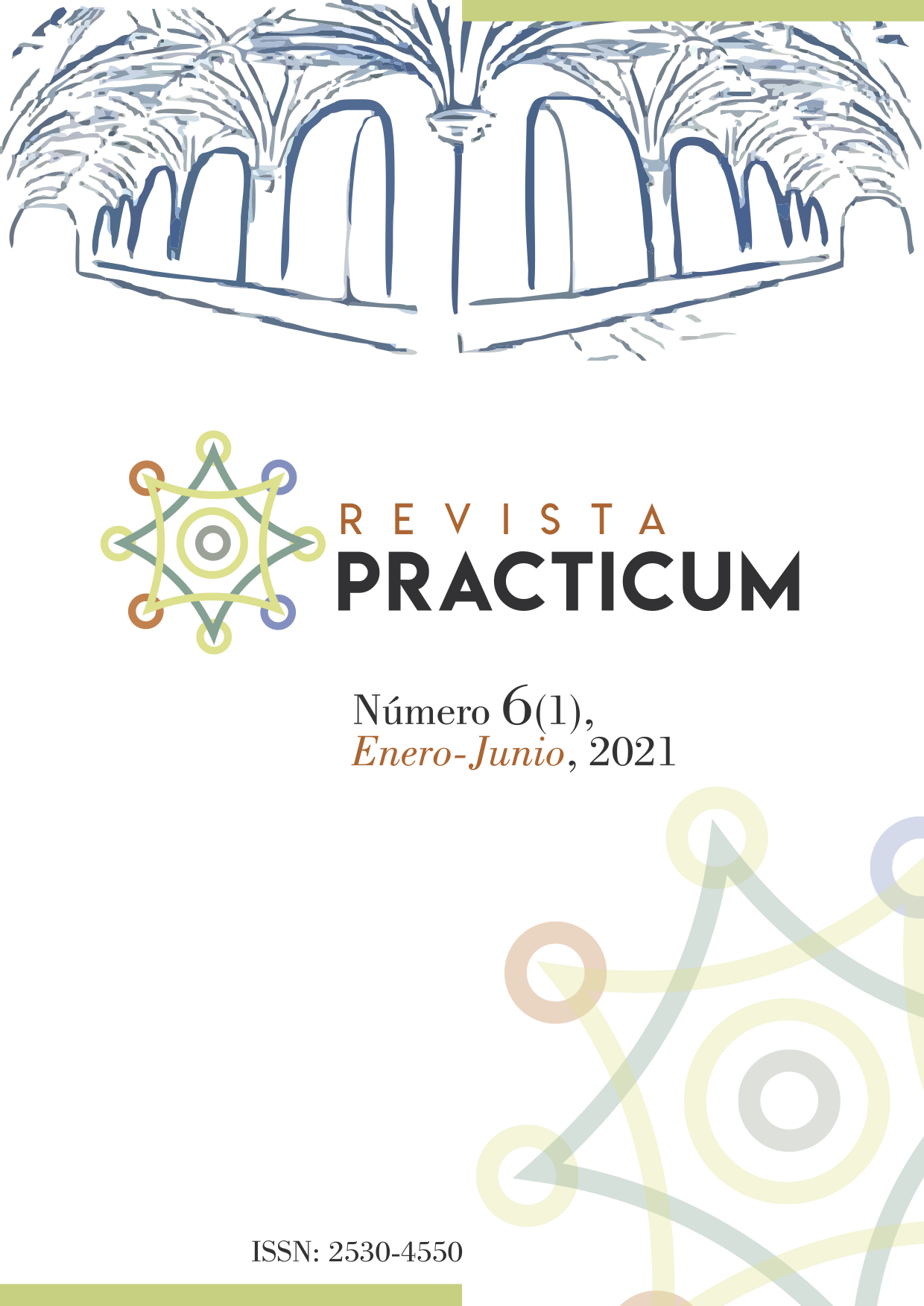Professional networks in the time of Covid19: sharing good practices for the use of ICTs in the practicum
DOI:
https://doi.org/10.24310/RevPracticumrep.v6i1.12283Keywords:
Professional networks, ICT, practicum, video annotations, social tagging, Covid19Abstract
The work between teachers sharing experiences and reflecting on teaching practices on video experiences is one of the most fruitful initiatives of professional networks. That has been the objective of this work, focused on reflections and analysis on experiences in the use of ICT in the practicum among 41 researchers and teachers from 17 Ibero-American Universities (2019-2021) through the methodology of video annotations during the Covid19 pandemic. Seventy-nine annotations were analyzed with 6 analysis tags on shared experiences. The research followed mixed methods on social tagging analysis. The results show an effective methodology for sharing experiences among teachers in networks and at a distance, based on the analysis of annotations and social tagging on video experiences. It facilitates a consensus of voices and focuses the attention of the network on different topics of interest for learning and professional development.
Downloads
Metrics
Publication Facts
Reviewer profiles N/A
Author statements
Indexed in
-
—
- Academic society
- N/A
- Publisher
- Universidad de Málaga
References
Area-Moreira, M., Bethencourt-Aguilar, A., Martín-Gómez, S. y Nicolás-Santos, M. B. S. (2021). Análisis de las políticas de enseñanza universitaria en España en tiempos de Covid-19. La presencialidad adaptada. Revista de Educación a Distancia (RED), 21(65). https://doi.org/10.6018/red.450461
Bolívar-Botía, A. (2015). Un liderazgo pedagógico en una comunidad que aprende. Padres y Maestros. 361, 23–27. https://doi.org/10.14422/pym.i361.y2015.004
Brown, Ch. y Poortman C. L., (Eds.), (2018). Networks for Learning: Effective Collaboration for Teacher, School and System Improvement. Routledge.
Cebrián-Robles, D., Blanco-López, Á. y Noguera-Valdemar, J. (2016). El uso de anotaciones sobre vídeos en abierto como herramienta para analizar las concepciones de los estudiantes de pedagogía sobre un problema ambiental. Indagatio Didactica, 8(1), 158–174. https://doi.org/10.34624/id.v8i1.3148
Cebrián-Robles, D., Pérez-Galán, R. y Cebrian-de-la-Serna, M. (2017). Estudio de la comunicación en la evaluación de los diarios de prácticas que favorecen la argumentación. Revista Prácticum 2(1), 1–21. https://bit. ly/2Rl8Rk2
Cebrian-de-la-Serna, M. (2011). Los eportafolios en la supervisión del prácticum: Modelos pedgógicos y soportes tecnológicos. Revista de Curriculum Y Formación Del Profesorado, 15(1), 91–107. https://bit.ly/3eOaA9V
Chapman, C. y Hadfield, M. (2009). Leading school-based networks. Routledge.
Danielowich, R. M. y McCarthy, M. J. (2013). Teacher Educators as Learners: How Supervisors Shape Their Pedagogies by Creating and Using Classroom Videos with Their Student Teachers. Action in Teacher Education, 35(3), 147–164. https://doi.org/10.1080/01626620.2013.806231
Dymond, S. K., Renzaglia, A., Halle, J. W., Chadsey, J. y Bentz, J. L. (2008). An Evaluation of Videoconferencing as a Supportive Technology for Practicum Supervision. Teacher Education and Special Education, 31(4), 243–256. https://doi.org/10.1177/0888406408330645
FOLTE (2021) Grupo de trabajo en formación online y tecnología educativas. https://tic.crue.org/
Gallego-Arrufat, M.J. y Cebrián-de-la-Serna, M. (2018). Contribuciones de las tecnologías para la evaluación formativa en el prácticum. Profesorado, 22(3), 139–161. https://doi. org/10.30827/profesorado.v22i3.7996
González-Brignardello, M. P. y Méndez Zaballos, L. (2017). Desarrollo de un practicum virtual: fundamentos y claves. Revista Practicum, 2(2), 50-68. https://doi.org/10.24310/RevPracticumrep.v2i2.9858
Hollingsworth, H. y Clarke, D. (2017). Video as a tool for focusing teacher self-reflection: supporting and provoking teacher learning. Journal of Mathematics Teacher Education, 20(5), 457–475. https://doi.org/10.1007/s10857-017-9380-4
Marçal, J., Borges, M. M., Viana, P. y Carvalho, P. (2020). Aprender la Física a través de anotaciones de vídeos en línea. Education in the Knowledge Society (EKS), 21, 21–21. https://doi.org/10.14201/eks.23373
Mosley Wetzel, M., Maloch, B., Hoffman, J. V., Taylor, L. A., Vlach, S. K. y Greeter, E. (2015). Developing Mentoring Practices Through Video-Focused Responsive Discourse Analysis. Literacy Research: Theory, Method, and Practice, 64(1), 359–378. https://doi.org/10.1177/2381336915617611
Osmanoglu, A. (2016). Prospective teachers’ teaching experience: teacher learning through the use of video. Educational Research, 58(1), 39–55. https://doi.org/10.1080/00131881.2015.1117321
Rosaen, C. L., Lundeberg, M., Cooper, M., Fritzen, A. y Terpstra, M. (2008). Noticing Noticing: How Does Investigation of Video Records Change How Teachers Reflect on Their Experiences? Journal of Teacher Education, 59(4), 347–360. https://doi.org/10.1177/0022487108322128
Sern, L. C., Nor, N. ‘ain H., Foong, L. M. y Hassan, R. (2017). Students’ Perception on Teaching Practicum Evaluation using Video Technology. IOP Conference Series: Materials Science and Engineering, 226(1), 012199. https://doi.org/10.1088/1757-899X/226/1/012199
Schildkamp, K., Wopereis, I., Jong, M. K.-D., Peet, A. y Hoetjes, I. (2020). Building blocks of instructor professional development for innovative ICT use during a pandemic. Journal of Professional Capital and Community, 39, 88. https://doi.org/10.1108/JPCC-06-2020-0034
Siry, C. (2014). Facilitating Reflexivity in Preservice Science Teacher Education Using Video Analysis and Cogenerative Dialogue in Field-Based Methods Courses. EURASIA Journal of Mathematics, Science & Technology Education, 10(5), 481–508. https://doi.org/10.12973/eurasia.2014.1201a
Vangrieken, K., Dochy, F., Raes, E. y Kyndt, E. (2015). Teacher collaboration: A systematic review. Educational Research Review, 15, 17–40. https://doi.org/10.1016/j.edurev.2015.04.002
Downloads
Published
How to Cite
Issue
Section
License
Acceptance of the work implies that the author grants Revista Prácticum the exclusive rights to reproduce, distribute and sell his or her work worldwide, both in digital and paper formats, CD-ROM, etc.
Likewise, the authors shall grant Revista Prácticum the rights of dissemination, public communication on the Internet and IT networks, data buses, as well as any other portals or electronic devices for online consultation of its contents and extracts, under the conditions of the portal, repositories or databases where the work is stored.
Revista Prácticum allows authors to publish and disseminate their articles and works on their personal websites, research teams, institutional repositories and scientific databases. All this in accordance with the Creative Commons 4.0 License










8.png)








